- Clone
- 177.19 (See other available formats)
- Regulatory Status
- RUO
- Other Names
- Autophagy protein 5
- Isotype
- Mouse IgG1, κ
- Ave. Rating
- Submit a Review
- Product Citations
- publications
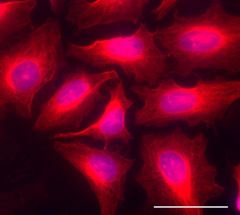
-

ICC staining of Alexa Fluor® 594 anti-ATG5 antibody (clone 177.19) on Hela cells. The cells were fixed with 4% PFA, permeabilized with 0.1% Triton X-100, and blocked with 2% normal goat serum and 0.02% BSA. The cells were then stained with 5 µg/ml of the primary antibody overnight at 4°C, then counterstained with DAPI (Cat. No. 422801) to visualize nuclei. The image was captured with a 40X objective. Scale bar: 50 µm.
| Cat # | Size | Price | Quantity Check Availability | Save | ||
|---|---|---|---|---|---|---|
| 847405 | 25 µg | £109 | ||||
| 847406 | 100 µg | £230 | ||||
Autophagy protein 5 (ATG5) is involved in autophagic vesicle formation. ATG5 forms a complex with autophagy protein 12 (ATG12), which has E3 ubiquitin ligase activity, and is associated with autophagosome vesicle formation. ATG5 detaches from membranes immediately before or after autophagosome formation. ATG5 is also involved in mitochondrial quality control after oxidative damage, the innate anti-viral immune response, and apoptosis.
Product DetailsProduct Details
- Verified Reactivity
- Human, Mouse, Rat, Drosophila
- Antibody Type
- Monoclonal
- Host Species
- Mouse
- Immunogen
- ATG5 peptide conjugated to KLH.
- Formulation
- Phosphate-buffered solution, pH 7.2, containing 0.09% sodium azide.
- Preparation
- The antibody was purified by affinity chromatography and conjugated with Alexa Fluor® 594 under optimal conditions.
- Concentration
- 0.5 mg/ml
- Storage & Handling
- The antibody solution should be stored undiluted between 2°C and 8°C, and protected from prolonged exposure to light. Do not freeze.
- Application
-
ICC - Quality tested
- Recommended Usage
-
Each lot of this antibody is quality control tested by immunocytochemistry. For immunocytochemistry, a concentration range of 1.0 - 5.0 μg/ml is recommended. It is recommended that the reagent be titrated for optimal performance for each application.
* Alexa Fluor® 594 has an excitation maximum of 590 nm, and a maximum emission of 617 nm.
Alexa Fluor® and Pacific Blue™ are trademarks of Life Technologies Corporation.
View full statement regarding label licenses - Application Notes
-
Reactivity to Drosophila was only verified with the purified format.
- RRID
-
AB_2750295 (BioLegend Cat. No. 847405)
AB_2750296 (BioLegend Cat. No. 847406)
Antigen Details
- Structure
- Human ATG5 is a 275 amino acid protein with a molecular mass of 32 kD.
- Distribution
-
Tissue distribution: Ubiquitous.
Cellular distribution: Vacuole, lysosome, and to a lesser extent mitochondria. - Function
- ATG5 is involved in many cellular processes including autophagic vesicle formation, mitochondrial quality control after oxidative damage, innate anti-viral immune response, and apoptosis.
- Interaction
- ATG12, LC3B, ATG16, TECPR1, Autophagy-linked FYVE protein.
- Biology Area
- Cell Biology, Neurodegeneration, Neuroscience, Neuroscience Cell Markers, Protein Trafficking and Clearance
- Molecular Family
- Autophagosome Markers
- Antigen References
-
1. Uchiyama Y, et al. 2008. Histochem. Cell Biol. 129:407. PubMed
2. Wu H, et al. 2014. Int. J. Biol. Sci. 10:1072. PubMed
3. Subramani S, Malhotra V. 2013. EMBO Rep. 14(2):143. PubMed - Gene ID
- 9474 View all products for this Gene ID
- UniProt
- View information about ATG5 on UniProt.org
Related Pages & Pathways
Pages
Related FAQs
Other Formats
View All ATG5 Reagents Request Custom Conjugation| Description | Clone | Applications |
|---|---|---|
| Purified anti-ATG5 | 177.19 | WB,ICC,IHC-P,Direct ELISA |
| Alexa Fluor® 594 anti-ATG5 | 177.19 | ICC |
| Alexa Fluor® 488 anti-ATG5 | 177.19 | ICC |
| Alexa Fluor® 647 anti-ATG5 | 177.19 | ICC |
| Spark YG™ 570 anti-ATG5 | 177.19 | ICC |
Compare Data Across All Formats
This data display is provided for general comparisons between formats.
Your actual data may vary due to variations in samples, target cells, instruments and their settings, staining conditions, and other factors.
If you need assistance with selecting the best format contact our expert technical support team.
-
Purified anti-ATG5
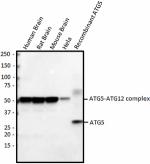
Western blot of anti-ATG5 antibody (clone 177.19). The blot ... 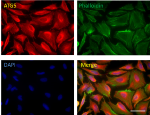
ICC staining of anti-ATG5 antibody (clone 177.19) on Hela ce... 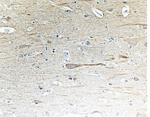
IHC staining of anti-ATG5 antibody (clone 177.19) on formali... 
Western blot of purified anti-ATG5 antibody (clone 177.19). ... 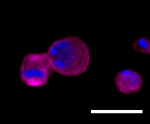
ICC staining of purified anti-ATG5 antibody (clone 177.19) o... -
Alexa Fluor® 594 anti-ATG5
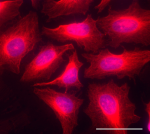
ICC staining of Alexa Fluor® 594 anti-ATG5 antibody (clone 1... -
Alexa Fluor® 488 anti-ATG5
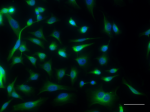
ICC staining of Alexa Fluor® 488 anti-ATG5 antibody (clone... -
Alexa Fluor® 647 anti-ATG5
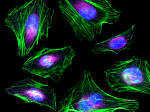
ICC staining of Alexa Fluor® 647 anti-ATG5 antibody (clone 1... -
Spark YG™ 570 anti-ATG5
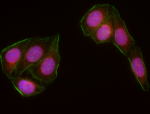
HeLa cells were fixed with 1% paraformaldehyde (PFA) and blo...
 Login / Register
Login / Register 













Follow Us